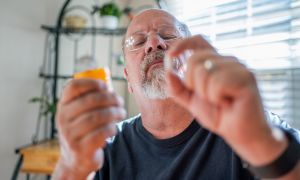Advertisement
A microaneurysm is a tiny aneurysm, or swelling, in the side of a blood vessel. In people with diabetes, microaneurysms are sometimes found in the retina of the eye. These miniature aneurysms can rupture and leak blood. Some research indicates that these microaneurysms can predict the progress of diabetic retinopathy, a condition in which blood vessels of the retina are damaged by diabetes, which can lead to blindness.
A microaneurysm is a small swelling that forms in the wall of tiny blood vessels. These small swellings may break and allow blood to leak into nearby tissue. People with diabetes may get microaneurysms in the retina, the light-sensitive area at the back of the eye.
Continue Learning about Diabetic Retinopathy (Eye Damage)
Important: This content reflects information from various individuals and organizations and may offer alternative or opposing points of view. It should not be used for medical advice, diagnosis or treatment. As always, you should consult with your healthcare provider about your specific health needs.





